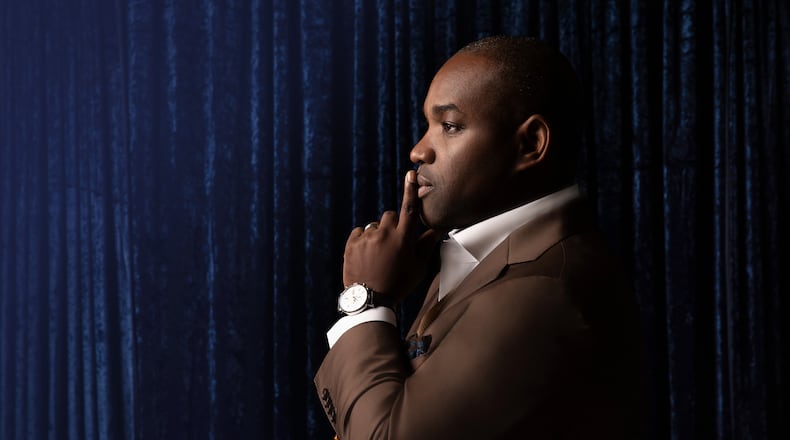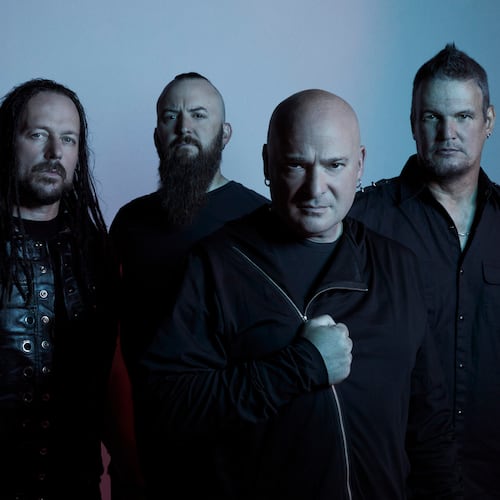This story was originally published by ArtsATL.
Lawrence Brownlee is one of the leading lights on the very short list of opera’s authentic superstars.
The Ohio-born tenor discovered his prodigious musical gifts as a child in his family’s church. After receiving his Master of Music from Indiana University, Brownlee aced the 2001 Metropolitan Opera Council auditions. He has gone on to a dazzling career that has taken him to the most important musical centers of Milan, Vienna, Paris, London, Madrid, Berlin, Munich and Zurich as well as virtually every important opera house and recital hall in the United States.
He has achieved particular success in the stratospheric tenor roles of the Italian bel canto, where his ability to pop out high Ds and Fs with seeming insouciance has thrilled audiences worldwide.
Brownlee is also a powerful voice for diversity and inclusion in the classical music industry. His mentorship of young musicians and strong social media presence (including his terrific Facebook interview series The Sitdown with LB) has found him on a musical mission that has touched the lives of countless performers and music lovers alike. In that process, Brownlee has easily emerged as America’s most effective operatic ambassador since Beverly Sills.
Credit: Zakiyah Caldwell Burroughs
Credit: Zakiyah Caldwell Burroughs
Atlanta audiences can sample Brownlee’s artistry at Emory University’s Schwartz Center for Performing Arts Friday night, when he brings his newly curated song cycle “Rising” to Emerson Concert Hall. With texts drawn from the plethora of writings from the Harlem Renaissance of the 1920s and ‘30s, the recital includes works by a range of African American composers including Damien Sneed, Brandon Spencer, Jasmine Barnes, Shawn E. Okpebholo and Atlanta native Joel Thompson.
Accompanied by pianist Kevin J. Miller, the project will be toured throughout the United States this spring and is set to be recorded by Warner Classics.
ArtsATL caught up with Brownlee at his home in Florida to discuss his storied career and the creation of Rising.
Q: Tell us about “Rising.” How did this project come to be?
A: It came out of the pandemic. I was doing The Sitdown with LB and a couple of other projects. During the pandemic, we all had to endure the George Floyd thing. That was something that changed us and will continue to be part of who we are as Americans. It was something that, as a Black man, I have dealt with my whole life, and colleagues began to reach out to me to say, “My God, is this really how it is?”
Many of these people are leaders: general directors and casting directors who wanted to be allies. I said they needed to program things. I do a lot of art song recitals, and I thought it would be smart for me to create something, and reach out to composers who wanted the chance to make their voices heard. As much as I present Poulenc and Schubert and so forth, the opportunity to present young African American composers in writings of other African Americans felt powerful. The project grew out of that need to give space to people, let their voice be heard, and let others know that the music of African American composers is not only for African American audiences.
Q: How did you go about choosing the composers?
A: I looked at people who were out there writing, people like Carlos Simon, Jasmine Barnes, Damien Sneed — people who had unique voices and would hopefully be given more of an entrée to have their music heard in halls like Carnegie or the Concertgebouw and Wigmore, places I am going to in the future. There is a wealth of composers out there. Some I already knew and reached out to were not free, but through word-of-mouth others came in. I wanted young, energetic, creative writers who could pen new works to add to the canon. These young, gifted composers all have something to say, and I think they have written something here that will be around, and I think that they will continue to explore.
Q: The Harlem Renaissance produced a formidable wealth of writings. What guided your choice of texts?
A: That was really interesting. We all know who W.E.B. Du Bois is and Langston Hughes, who is probably the most recognizable name among the Harlem Renaissance writers. You also have James Weldon Johnson, you have Arnaud Bontemps, so many others that people know less about. My team and I selected several texts and gave the composers the opportunity to look at things that resonated to them. We didn’t want to force their hand; we wanted them to choose texts that were meaningful to them that they felt they could give voice to.
All too often, Black poetry has been encapsulated in struggle and hardship. That is less the case now. Writers are talking about peace, about love, things we all want in life. I wanted to make sure the conversation was about the fullness of life and not limit this music to African American pain and difficulty. When this concert is heard, I think people will realize that this is not music that only African Americans can sing. It isn’t limited to negatives; it celebrates the beauty of Black life as well.
I woke up this morning and went out with my daughter. We went to a couple of stores, and we went fishing. None of those things are uniquely Black, they are just life experiences. Sometimes our negotiation of life is highlighted by this Black skin we walk around in; but you know, I haven’t really thought about the fact that I’m Black today, that doesn’t dominate everything. I wanted to make sure that these composers’ pieces weren’t solely about Blackness, but about their lives and life experiences.
Q: We recently spoke to Atlanta soprano Jasmine Habersham, who had a lot to say about the need for new Black stories.
A: Absolutely! Look at the popularity of the Cosby show, or Eddie Murphy’s “Coming to America.” Those were things that showed us coming from good stock, not being looked down upon. New stories need to be written. I am talking to someone now about writing an opera that is about Black nobility and has nothing to do with racial struggle, because it is important to get away from that. We have an endless supply of things to write about. Somebody needs to write a comedy that deals with funny things about the culture but doesn’t focus on struggle.
Q: Your audience for “Rising” will obviously include sophisticated vocal aficionados; but because of who you are the concert will also attract newcomers who have little experience with classical programs. How would you advise the novice listener to approach this music?
A: They are going to hear music that speaks directly to anyone. They are going to hear about Romeo and Juliet, and about the youth of a man and what he learns in coming of age; they will hear a wealth of things. They will hear the work of composers that have been influenced by gospel and jazz and pop and Stravinsky. It is a very rich palette. They are going to be surprised, and if they come with their minds limited, they will be blown away. They will be introduced to so many different styles from composers who are forming their signature sound, which is beautiful.
Q: Why are classical singing and opera important?
A: Opera is unique because it can convey things that an orchestra alone cannot. When you put all the disciplines that come together to make opera happen, it’s powerful. People may say, “Oh, I am not an opera aficionado” but opera tells real human stories, and if you give it a chance you may find that it can be the most effective art form out there.
Q: You are an amazing musical ambassador, but you are also not afraid to use your voice as an implement for social justice. How did that come to be?
A: That is something I have been involved in for a long time, it’s par for the course for me. I consider it a responsibility to speak up for others. It comes from a place of wanting to be educated and have a clear understanding of what I believe in. If I see something is not going right, I speak up. I saw my parents and other people that I admire do that and I have learned by example. I care about others; I don’t want to see anyone mistreated. I am very supportive of my friends in the LGBTQ community. I want to always be in a place of learning. I try to be kind and respectful and I hope that if I have that attitude people will respect me and be open to listening.
It’s not my job to figure out if people get it or not. My hope is that while they are lying in their beds, or eating breakfast and reading The New York Times, they will reflect upon things we have discussed and that something I have said will open some hearts and lead them towards change.
Then, my work is done.
MUSIC PREVIEW
Lawrence Brownlee
8 p.m. March 17. $50. Emerson Concert Hall, Schwartz Center for Performing Arts, 1700 N. Decatur Road, Atlanta. 404-727-5050, arts.emory.edu.
::
Mark Thomas Ketterson is a Chicago-based arts critic and writer. He is the Chicago correspondent for Opera News, and has also written for Playbill, the Chicago Tribune and other publications.
Credit: ArtsATL
Credit: ArtsATL
MEET OUR PARTNER
ArtsATL (www.artsatl.org), is a nonprofit organization that plays a critical role in educating and informing audiences about metro Atlanta’s arts and culture. Founded in 2009, ArtsATL’s goal is to help build a sustainable arts community contributing to the economic and cultural health of the city.
If you have any questions about this partnership or others, please contact Senior Manager of Partnerships Nicole Williams at nicole.williams@ajc.com.
About the Author
Keep Reading
The Latest
Featured





